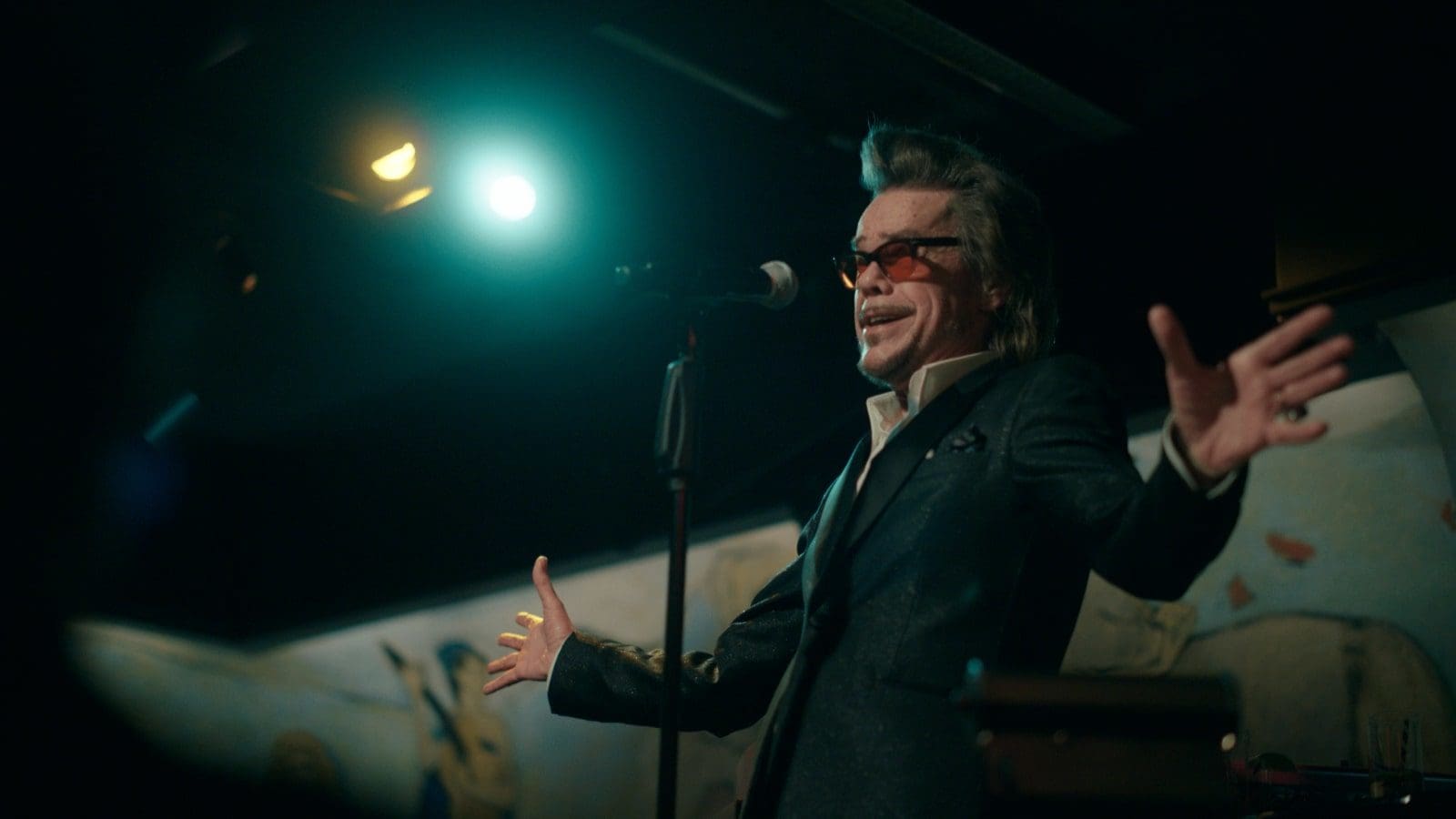
With Personality Crisis: One Night Only, director Martin Scorsese returns to music documentaries, bringing along prolific editor David Tedeschi to help. The film puts the spotlight on legendary musician David Johansen for an intimate and highly entertaining looking at his career and personal life. It brings viewers into a pre-pandemic set performed by Johansen at the legendary Café Carlyle, intercut with archived footage and interviews chronicling Johansen’s impact in music.
Personality Crisis is essentially half actual documentary and half watching Johansen perform a concert right before your eyes, and frankly, it’s a great viewing experience. Scorsese and Tedeschi make the performance at Café Carlyle feel very immersive, to the point where you feel like you’re sitting right in the room and are a part of the experience. Plus, Johansen’s lounge music and personality make him endlessly enjoyable to watch on stage.
Johansen’s stage presence is just so warm, friendly, and genuine, making him a total treat throughout and he truly leaves you hanging off every word because he’s got such an engaging voice. The stories he tells you between songs are full of charm and these moments can even blend nicely with some of the achieved footage surrounding it. There’s really nothing like sitting and listening to Johansen deliver some lounge-y tunes that make you sink deeper into your seat and chill. It’s a perfectly engaging experience and truthfully, it’s a shame that Personality Crisis is likely skipping theaters for an exclusive release on Showtime, since it boasts a unique cinematic experience that audiences–especially fans of Johansen–would love to be a part of.
When Personality Crisis isn’t just an on-screen concert, it’s equally as entertaining and engaging as it details Johansen’s perspective coming up in the underground music and avant-garde art scenes in New York City. In the same vein as Todd Haynes’ 2021 documentary, The Velvet Underground, there’s something so intriguing about exploring this era of underground music and artistic creativity that would go on to be so influential to mainstream music. With Johansen’s spotlighted perspective, you feel like you are getting a small tour from someone who truly lived this era and is so personable in talking about himself coming up as a musician.
Johansen’s career is actually pretty intriguing to look at given his major genre shift midway through and the impact of his early career with the New York Dolls. Along with helping establish a strong underground counterculture and acting as an influence for multiple high-profile bands that took over the music industry, Johansen and the New York Dolls helped bring up topics on gender through their cross-dressing. It was a big part of what made Johansen and the New York Dolls leave such a lasting social impact and spawn a great legacy in punk music and that underground scene, but you can’t help but want more details on it all than the film really provides.
Although it’s easy to love watching Johansen perform his set, if one or two songs were cut, maybe there could’ve been more details on the more intriguing historical bits of Johansen’s legacy. At times, it can feel like the footage and story threads of Johansen talking about his transition from being an underground punk legend to a lounge lizard or points of reflection he has with his time in music and his life get cut short by the switch back to him on-stage performing. The transitions can be smooth with some of the stories that Johansen is telling on-stage connecting to a previous talking point, but it does feel like the film could go deeper than it really does—especially since Johansen is such an interesting and captivating figure with a story that’s worth hearing.
Even as someone who legitimately had no idea who Johansen was going into Personality Crisis, it’s hard not to just fall in love with him and his story. His discussions about reinventing himself as an artist when becoming his lounge singer persona, Buster Poindexter, are fascinating and instantly make him unique because of how strong of a genre shift he had. The trappings about his personal life, his relationship with music growing up, and his retrospective on himself are deeply personal and even see Johansen be vulnerable in how he talks about himself. He truly thrives in the spotlight every second he’s in it and acts as this great vessel into both himself and music in general. Plus, it’s great how honest he is about things and his joke about being a one-hit wonder twice is a great embodiment of how humble he’s become.
Personality Crisis: One Night Only is truly a one-of-a-kind watch that mixes a comforting and casual concert courtesy of Johansen as well as a fulfilling and fascinating study of one of music’s most personable and influential characters.

